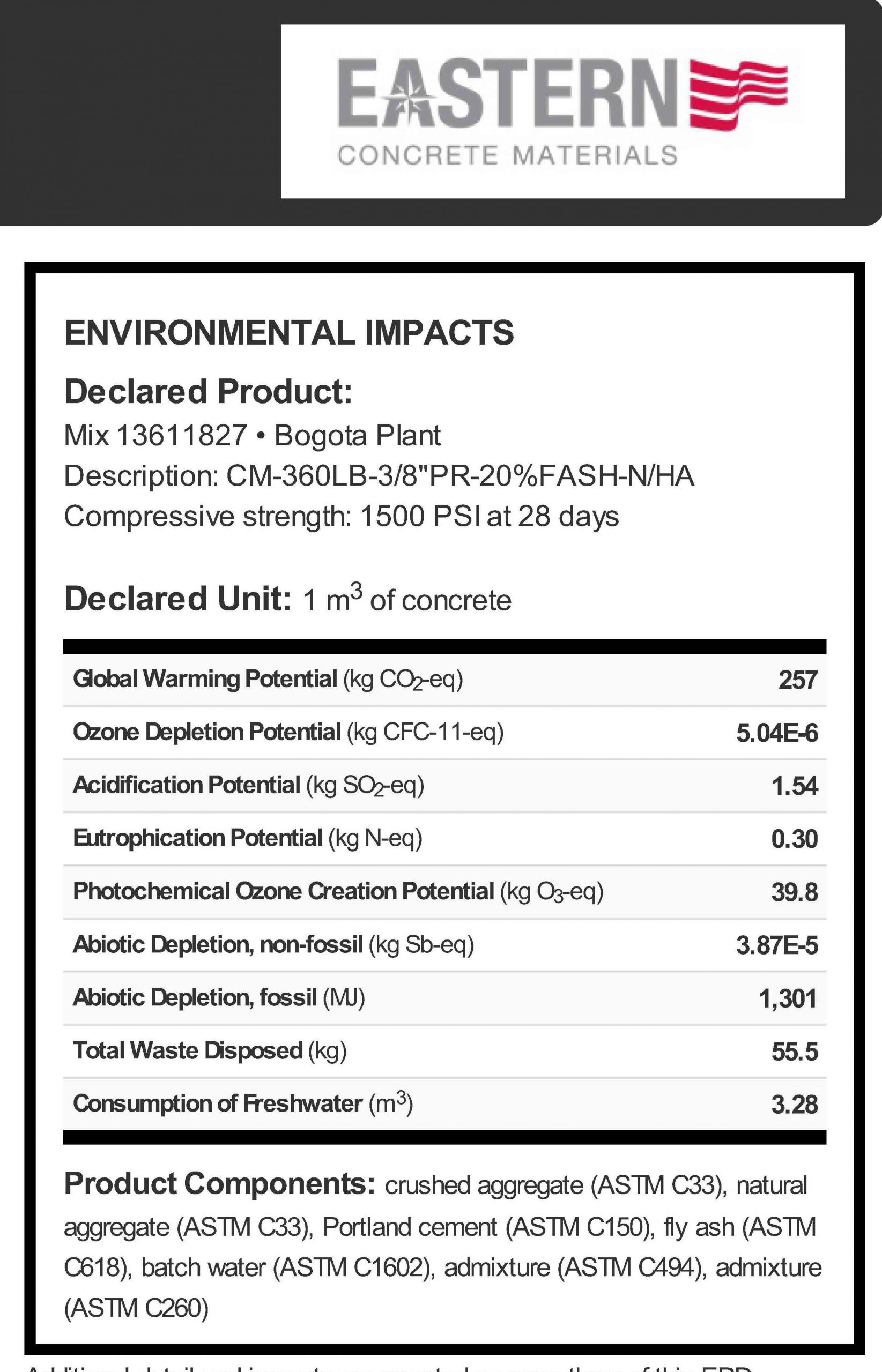Garden State incentivizes EPD preparation, low carbon concrete production
Sources: Office of New Jersey Governor Phil Murphy; CMCM staff
A New Jersey law effective in 2024 will provide corporation business tax and gross income tax credits for costs of preparing Environmental Product Declarations that assess concrete mixes’ global warming potential, expressed on EPDs as kg of carbon dioxide equivalent per cubic yard or meter. The just-signed Bill S278, or Low Embodied Carbon Concrete Leadership Act, also offers tax credits for state project-bound orders (> 50 yd.) of concrete that has a) lower carbon emissions associated with its production, including mining, refining, manufacturing or shipping; or b) deploys carbon capture, utilization, or storage technology to remove or recycle CO2 generated through the production cycle.

The Low Embodied Carbon Concrete Leadership Act provides tax credits for Environmental Product Declaration preparation costs that Eastern Concrete Materials and peers incur for public and private construction contract submittals. Shown here is the impact breakout from the EPD for lean Mix 13611827, one of many Eastern Concrete produces at its Bogota, N.J. ready mixed plant.
“The signing of this bill represents a significant step forward in our efforts to promote sustainable economic growth,” says Senator Linda Greenstein, lead S287 sponsor. “It is the first of its kind in the country and will not only help to reduce emissions from the building sector, but also incentivize New Jersey businesses to invest in low-carbon technologies. A win-win for our environment and economy.”
“As efforts to decarbonize our economy become more urgent, we must also ensure that they become increasingly more economically attractive,” adds Governor Murphy. “Bills like these will stimulate economic activity and growth in the industries that remain key to our climate solution. This legislation will further support the construction of greener, cleaner buildings and roadways in New Jersey.”
“By incentivizing the manufacturing and use of low carbon concrete, we are building on our efforts to reduce New Jersey’s carbon emissions,” notes Assemblyman John McKeon. “The concrete industry is a leading industrial source of carbon emissions, and a significant portion of concrete produced in the United States is used for public projects. With this new law, we are taking steps to create a healthier and environmentally safer New Jersey for future generations.”